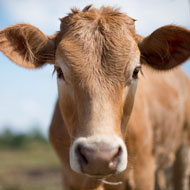Scotland announces plans to make CCTV compulsory in abattoirs

CCTV will be required in all areas where live animals are held.
The Scottish government has stated that legislation will be brought forward in 2019 in which CCTV will be mandatory in Scottish abattoirs. CCTV will be required in all areas where live animals are held.
The bill is intended to aid those responsible for enforcing animal welfare legislation and to safeguard the highest standards of animal welfare for farm animals.
Commenting on the news prior to a parliamentary statement on animal welfare, Minister for Rural Affairs and the Natural Environment Mairi Gougeon said:
“More than eight out of ten slaughterhouses in Scotland have already installed CCTV coverage in their premises voluntarily, and over 95 per cent of all animals slaughtered in Scotland are covered by some form of CCTV. However, the standards of that coverage can differ from location to location.
“This government is committed to ensuring the highest standards of welfare for all animals. And we are pleased that so many respondents to our consultation backed our proposals to make this compulsory. It was important also to consider the financial implications of such a move for industry, and whether other options might be available to improve animal welfare.
“Following a positive response to the consultation, I’m delighted to announce that I will introduce legislation to the Scottish Parliament in 2019, which will help to improve further the already high standards being followed by the livestock sector in Scotland.”
The bill was supported by the majority of respondents to a recent consultation implement by the Scottish government.



 The Federation of Independent Veterinary Practices (FIVP) has announced a third season of its podcast, Practice Matters.
The Federation of Independent Veterinary Practices (FIVP) has announced a third season of its podcast, Practice Matters.